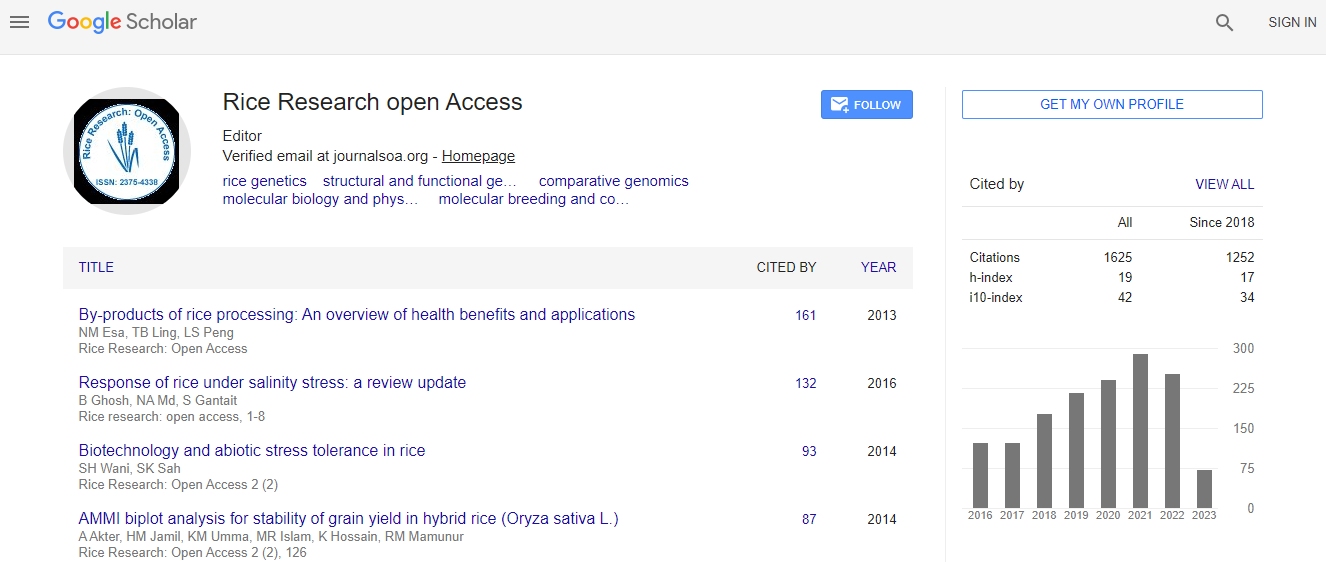A Comparative Analysis of Organic vs. Conventional Rice Farming: Soil Health and Yield Sustainability
*Corresponding Author:Received Date: Sep 02, 2024 / Published Date: Sep 28, 2024
Copyright: © 0 . This is an open-access article distributed under the terms of the Creative Commons Attribution License, which permits unrestricted use, distribution, and reproduction in any medium, provided the original author and source are credited.
Abstract
Organic rice farming has gained popularity as a more environmentally sustainable alternative to conventional practices, but its long-term impact on soil health and yield sustainability remains unclear. This study compares the effects of organic and conventional rice farming systems on soil microbial communities, nutrient availability, and rice yields over a three-year period. Soil samples were analyzed for organic carbon, nitrogen levels, and microbial diversity, while rice yield and quality were measured at harvest. The results indicated that organic rice farming significantly improved soil health, increased microbial diversity, and maintained comparable yields to conventional systems, making it a viable option for sustainable rice production.

 Spanish
Spanish  Chinese
Chinese  Russian
Russian  German
German  French
French  Japanese
Japanese  Portuguese
Portuguese  Hindi
Hindi 
